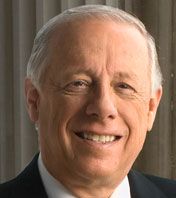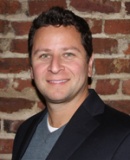By Milt Capps Last updated 5:26 p.m., June 16, 2009
Published Tuesday, June 16, 2009 2:55 pm
|
Updated: NBJ reported April 14, 2016, that Qualifacts now has about 150 FTE and forecasts strong organic growth.-Ed.
Nashville's Qualifacts Inc. and strategically well-placed MTM Services are collaborating to introduce e-health solutions to behavioral health consortia.
The alliance is producing revenue for each of the firms, which operate independently, with Qualifacts having most recently announced signing an MTM Services client: East Hartford, Conn.-based Intercommunity Mental Health Group.
 Software provider Qualifacts was founded in 2000 by now-Gov. Phil Bredesen (at left), who while in office has become a national opinion leader in the e-Health arena.
Software provider Qualifacts was founded in 2000 by now-Gov. Phil Bredesen (at left), who while in office has become a national opinion leader in the e-Health arena.
Bredesen created Qualifacts by spinning-off the proprietary technology of his former firm Camelot Care Corp., coincident with the sale of Camelot to Tuscon-based Providence Service Corp., in 2002. Camelot provided foster-care services for youth.
MTM Services markets its business-process improvement services solely under contract with the National Council of Community Behavioral Healthcare (NCCBH). "MTM" stands for "management, training and management" services, and the company is based in Holly Springs, N.C., near Research Triangle Park.
MTM Founder and President David Lloyd (at right) told VNC this morning that in consulting to groups of behavioral-health providers, he takes the vendor-agnostic approach.
providers, he takes the vendor-agnostic approach.
However, Lloyd said that during the past 18 months or so, he has found that Qualifacts is often most competitive when MTM provider-clients adopt MTM's business-requirements recommendations and then issue competitive requests-for-information or -proposals from the e-health vendor community.
Lloyd stressed Qualifacts has no "contractual lock" in obtaining business on the heels of MTM, and that MTM clients ultimately approve system specifications for bidding. MTM, he said, earns no commissions or fees when Qualifacts secures a contract. He noted the two firms have collaborated in writing and publishing a white paper on issues of common interest.
Lloyd is an influential arbiter of best practices for adopting electronic health records, because of his formal relationship with NCCBH and the fact he has thus far, by his count, worked in 37 states on projects involving 450 centers.
 In addition, separate VNC interviews with Qualifacts President and CEO David Klements and Lloyd left no doubt the two executives are on the same page, with regard to longer-term strategy. Both men said they believe that if the nation is to attain optimal provider adoption of electronic health records and related technologies, providers will have to band together in consortia, in order to simplify standardization, scale and cost-effectiveness.
In addition, separate VNC interviews with Qualifacts President and CEO David Klements and Lloyd left no doubt the two executives are on the same page, with regard to longer-term strategy. Both men said they believe that if the nation is to attain optimal provider adoption of electronic health records and related technologies, providers will have to band together in consortia, in order to simplify standardization, scale and cost-effectiveness.
With that in mind, both CEOs also said their firms are actively supporting communities of providers who are willing to move toward creation of local, regional or state consortia.
Said Lloyd this morning, "We have tried Johnny Appleseed approaches in the past," addressing the needs of one behavioral-health center at a time - "I don't think we have time nor resources any more to do that," he added. The consortium approach is crucial, Lloyd continued, if the nation is to "get over this electronic-record anxiety hump we tend to be stuck on."
At the same time, Lloyd characterized the task of moving independent providers to one e-health system as nothing less than "mammoth" and hugely complex.
Klements shared that view, and went farther: "What keeps me up at night," he said, is concern that tech vendors' reputations may suffer collectively, if even a handful of vendors fail to implement adequately the systems that are being purchased by providers who are newly incented to adopt technology by accelerating movement toward healthcare reform, new downward pressure on reimbursement, and the sudden availabililty of fresh capital from the federal Stimulus-spending program.
may suffer collectively, if even a handful of vendors fail to implement adequately the systems that are being purchased by providers who are newly incented to adopt technology by accelerating movement toward healthcare reform, new downward pressure on reimbursement, and the sudden availabililty of fresh capital from the federal Stimulus-spending program.
Asked to comment on that dynamic, without hesitation Lloyd said such failed implementations are already occurring, and when a project's completion is delayed or the result inadequate, it can cause providers to suffer financially to the point they need to take such steps as borrowing money to meet payroll.
He declined to name companies that have failed to implement projects as needed, but indicated some of the vendors he had in mind are very well known.
Lloyd said that Qualifacts CareLogic technology, which powers a Web-based service, has capabilities and flexibility that allow simpler and must faster project implementations and training than available through most other firms, at this time.
Klements recalled that the stage for his company's current CareLogic product's advance was set about three years ago, when the company decided to abandon its custom-software development approach and go to the standardized software-as-a-service model that is conducive to rapid standardized integration with customers' business processes.
 Klements said the $300,000 pricetag and 18-month implementation timeline for custom projects has now given way to 4- to 6-month implementations, at much lower cost to customers.
Klements said the $300,000 pricetag and 18-month implementation timeline for custom projects has now given way to 4- to 6-month implementations, at much lower cost to customers.
With greater capacity to handle more projects simultaneously, Klements said Qualifacts has grown its sales staff to nine fulltime field representatives, and is doing more sales presentations via the Web, which translates on an increase of monthly presentations from "six to eight" mostly inperson presentations two years ago, to "35 to 40" Web-enabled presentations per month, nowadays. Klements stressed that all Qualifacts customers are nongovernmental, private-sector entities.
Qualifacts currently has 45 signed customers. Klements estimated that number may grow to 70 by year's-end. Klements said Providence, the Camelot buyer seven years ago, is currently the Qualifacts customer with the most Carelogic users.
Klements, 36, would not discuss the company's finances or investors, other than to note that investors are all wealthy individuals. The company employs about 50 persons, the majority based in the company's 12,000-sq. ft. offices at 200 2nd Ave. South, in SoBro.
It was Providence's successful IPO in 2003 that allowed the company to consummate its purchase of Camelot. The IPO was also the vehicle by which Bredesen and now-First Lady Andrea Conte disposed of shares they owned, in order to avert a possible conflict of interest during Bredesen's service as governor of Tennessee.
Bredesen's two consecutive terms as governor have, in most circles, further burnished the governor's healthcare credentials. He was not long ago touted as a candidate for President Barack Obama's secretary for health and human services. Off and on, for years, he has attracted the sometime unwelcomed spotlight for grappling with funding TennCare and related services.
He was not long ago touted as a candidate for President Barack Obama's secretary for health and human services. Off and on, for years, he has attracted the sometime unwelcomed spotlight for grappling with funding TennCare and related services.
Generally with less controversy, Bredesen has also launched the state's first e-Health Advisory Council (run from the Office of e-Health Initiatives) and pursued policy reform; and, he has served several years as co-chair of a National Governors Association State Alliance for e-Health.
Of course, all that came years after Bredesen had secured his entrepreneurial credentials as the founder and eventually the seller of controlling interest in HealthAmerica Corp., the NYSE-listed company that helped make him wealthy enough to forego accepting a salary as governor.
.jpg) Bredesen has given the media no hints of how he might imagine life beyond the governor's mansion nearly two years from now; thus, plans ranging along the continuum from Obama Cabinet service to a life of mainly family, fishing and hunting cannot be ruled-out.
Bredesen has given the media no hints of how he might imagine life beyond the governor's mansion nearly two years from now; thus, plans ranging along the continuum from Obama Cabinet service to a life of mainly family, fishing and hunting cannot be ruled-out.
Logic suggests there is at least the possibility that focusing on a relatively small, but potentially influential holding such as Qualifacts might appeal to the politically vetted Harvard University physics grad and former mayor of Metro Nashville.
Responding to a question from VNC, Qualifacts CEO David Klements said Gov. Bredesen and Qualifacts management are in touch, periodically, about the business.
When asked by VNC whether Bredesen might become more active with the firm after January 2011, when he is scheduled to complete his second term as the state's chief executive, Klements replied with a broad grin, "I'd be happy to have him spend more time with us." ♦
